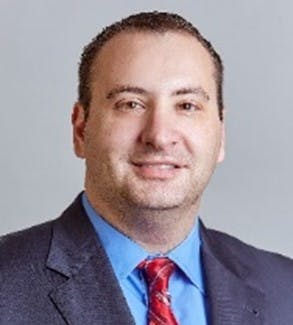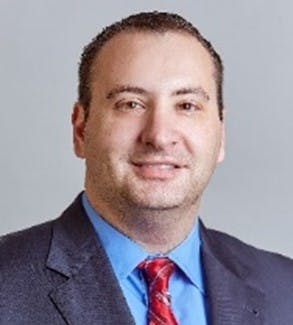Managing Money For Today
3 min read

A S.M.A.R.T. Plan to Know Your Financial Goals

by Travis Marks, CFP®, CFA®
Pension Boards-United Church of Christ, Inc.
A S.M.A.R.T. Plan to Know Your Financial Goals
It’s easy to feel disorganized and scattered when thinking about your finances. Setting financial goals can be overwhelming, especially if your main focus is on ministry and those you serve.
You may not know where to begin, but understanding your financial situation will help you determine how much you need to save and invest to achieve your retirement goals. Ultimately, the better handle you have on your financial situation, the more peace you will have when serving others.
Here’s a great place to start:
The well-known motivational speaker Tony Robbins said, “Setting goals is the first step in turning the invisible into the visible.”
To realize your financial goals, we recommend creating S.M.A.R.T. Goals and asking yourself a few basic questions. Here’s a student loan debt example:
- Specific: I want to pay off my student loan debt in 10 years.
(What are my options? What is possible? How do I learn more?) - Measurable: My remaining balance is $80,000, and the interest rate is 7%.
My minimum monthly payment is $600.
(How long will it take to pay off my debt If I’m paying the minimum payment? How much goes to reducing the principal amount? How much goes to paying interest?) - Achievable: Paying the minimum amount will require 21 years to pay off the balance.
(Can I pay more than the minimum amount? How much is required to pay off my debt in 10 years?) - Realistic: I will have to pay $930 per month to pay-off the balance in 10 years.
I cannot afford that amount given other demands on my budget.
(Are there any government or private programs that can assist in reducing my balance and/or interest rate?) - Time-Bound: The Public Service Loan Forgiveness Program can cancel my remaining balance after ten years if I satisfy program requirements.
(How do I determine if I qualify?)
Knowing your financial goals will enable you to feel confident about your financial future, while providing you with peace of mind as you focus on your service to God and your community.
Take control of your finances
Fill out the Setting a SMART Savings Goal worksheet, and discuss your financial goals with a Fidelity Retirement Planner by calling the Pension Boards’ Member Services at 1.800.642.6543 from 8:30 a.m. to 9:00 p.m. ET.

by Travis Marks, CFP®, CFA®
Travis Marks, CFP®, CFA®, is the Director of Generations University for the Pension Boards, responsible for the education initiatives for Pension Boards members, employers, and internal staff. Prior to joining the Pension Boards, Travis worked as Senior Manager of the National Financial Education Practice (FEP) for PricewaterhouseCoopers. He has more than 16 years of financial planning, education, and management experience, and has a passion for helping people improve their finances.
The advice I would give other clergypersons in unique financial situations is just practice the basics of creating a budget and sticking with it.Rev. Michael L. Sloan
First Congregational Church of Spencerport, NY
RELATED ARTICLES
Coming to Terms with Financial Practicalities
Five Ways to Save Money on a Budget
POPULAR RESOURCES
Setting SMART Financial Goals
Setting financial goals can motivate you to save money. When these goals are SMART, you’re more likely to achieve them.
Budgeting Worksheet
A cash flow budget is all about tracking the timing of your income and expenses to make sure you have enough from week to week.